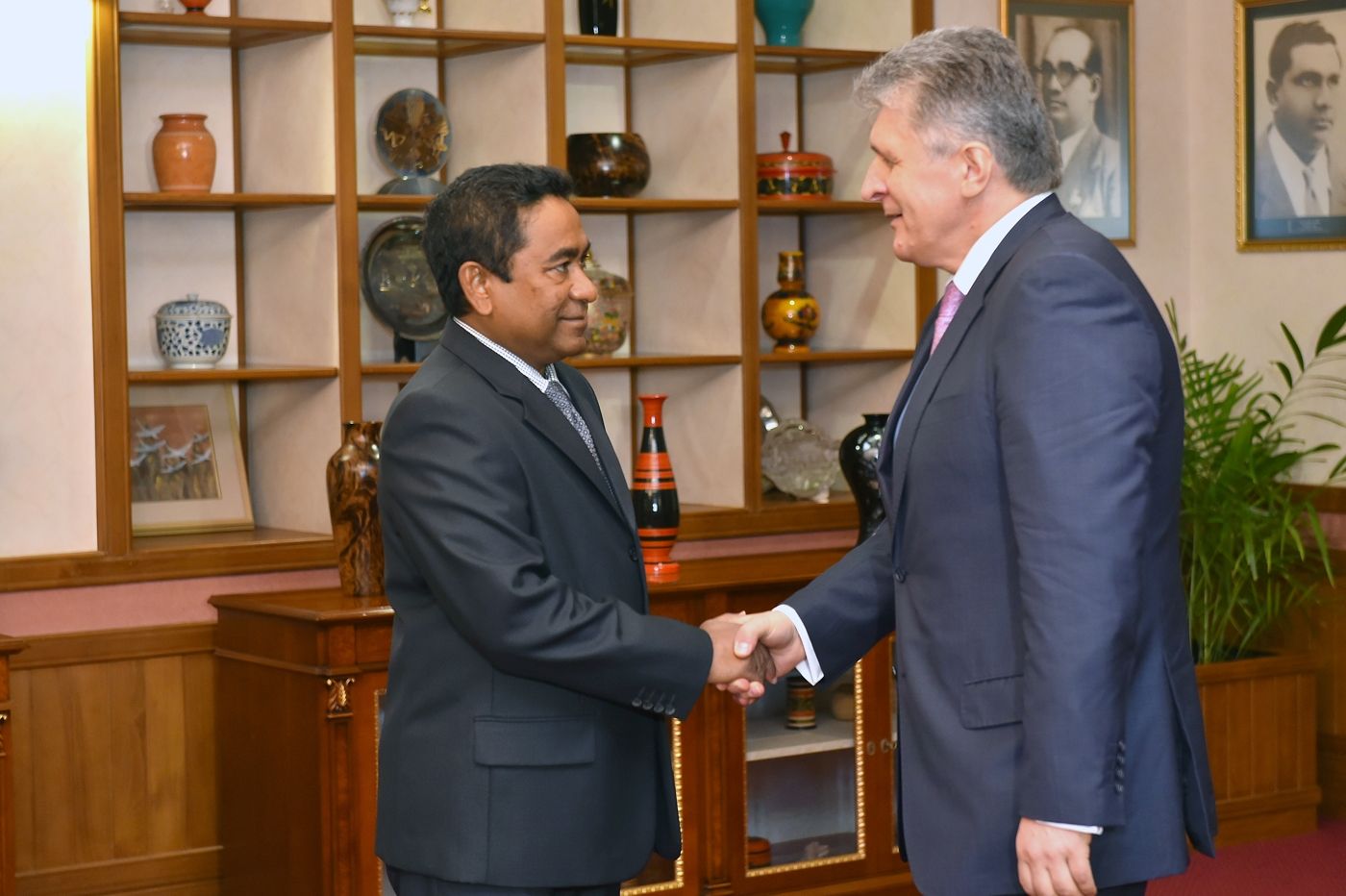Government to seek international assistance over stalled talks
The Maldivian government will seek international assistance to bring the opposition to the negotiating table, Fisheries Minister Dr Mohamed Shainee announced today, after cancelling a second-meeting of all-party talks.

03 Mar 2016, 09:00
The Maldivian government will seek international assistance to bring the opposition to the negotiating table, Fisheries Minister Dr Mohamed Shainee announced today, after cancelling a second-meeting of all-party talks.
The main opposition Maldivian Democratic Party and the Adhaalath Party have labeled the talks a farce, insisting that they will only sit down if jailed leaders, including former President Mohamed Nasheed and AP President Sheikh Imran Abdulla, are released.
President Abdulla Yameen has sent mixed signals so far, urging the opposition to advise him on reconciliation, even while defending the lengthy sentences handed to his opponents. There is nothing the president can do, he has insisted, claiming that the Maldives’ judiciary is independent.
Shainee, who leads the all-party talks, told the press today: “We called a meeting today hoping all parties would join. We received a letter from the MDP informing us of conditions they had mentioned before, that they would not join until those they consider political prisoners are freed.
Become a member
Get full access to our archive and personalise your experience.
Already a member?
Discussion
No comments yet. Be the first to share your thoughts!
No comments yet. Be the first to join the conversation!
Join the Conversation
Sign in to share your thoughts under an alias and take part in the discussion. Independent journalism thrives on open, respectful debate — your voice matters.




